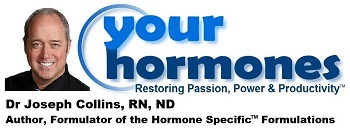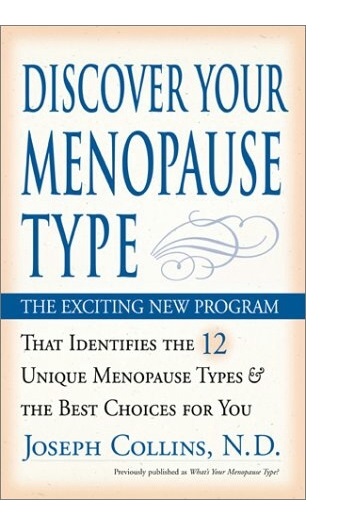
Menopause Type® One Protocol by Joseph J. Collins, RN, ND
Menopause Type® One has symptoms that reveal adequate estradiol and progesterone function, with normal testosterone function.
Since all three hormones are adequate, Menopause Type® One does not have many of the health risks associated with other Menopause Types®. Menopause Type® One indicates that the questionnaire resulted in less than 50% of symptoms in each category; estrogen deficiency, progesterone deficiency, testosterone deficiency and androgen excess. To learn more about Menopause Type® One, please see pages 83 through 87 in Discover Your Menopause Type, by Dr. Joseph J Collins, RN, ND.
Determination of this menopause type® is made through the use of the Menopause Type® Questionnaire, and/or lab tests. The Foundations of Hormone Health provides a detailed description on how to get the best results from protocols. A brief summary on using this protocol is at the bottom of this page.
Hormone Specific™ Formulation for Menopause Type® One
Since there are less than 50% of symptoms in each category, a Hormone Specific™ Formulation may not be needed for Menopause Type® One. However, if there are any specific symptoms that are troubling and significantly affect quality of life, even if the total number of symptoms is less than 50% for any given hormone, then consider using the Protocols for Specific Menopause Symptoms.
Other considerations:
Generalized fatigue disorders or adrenal fatigue can occur with any Menopause Type®. If a fatigue disorder is suspected, consider AdrenoMend™ to support normal adrenal function and support the normal function of the multiple homeostasis regulatory systems that become imbalanced with fatigue disorders.
Decreased thyroid function may also be present with any menopause type®. If decreased thyroid function is suspected, use the Hypothyroid Risk Questionnaire™ to calculate the probability of low thyroid function being present now, and if ThyroMend™ would be beneficial at this time.

